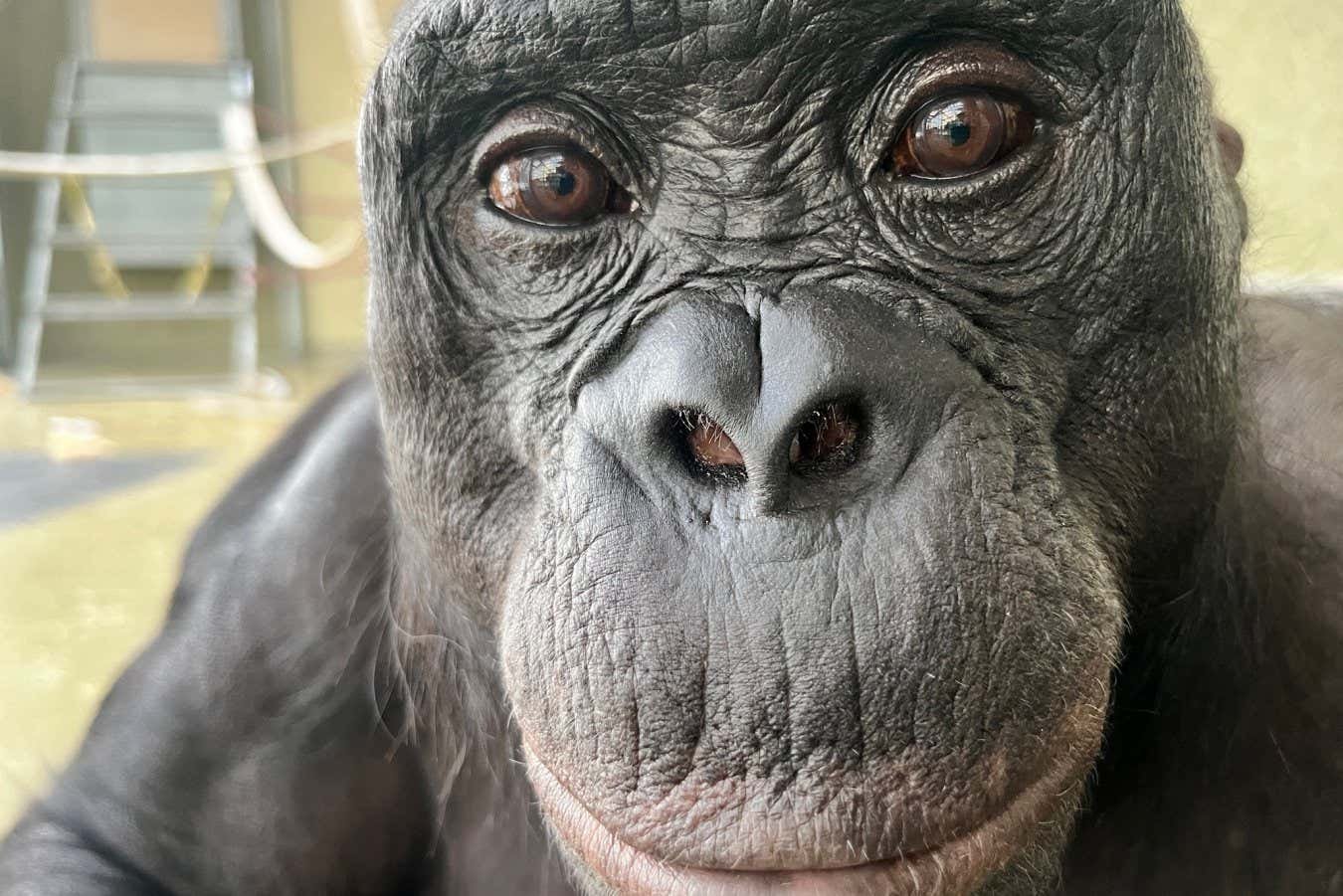Kanzi, one of three captive bonobos whose mental abilities were tested in the study
Ape -Initiative
Bonobos is quick to help someone who doesn’t know what they know a sign that they can derive the mental states of others.
The capacity to think about what others think, known as theory of mind, is an important skill that allows people to navigate their social worlds. Detables us to acknowledge that someone may have different beliefs or perspectives on our own, which underpins our ability to understand and help others available.
The question of whether our closest living relatives also have theory of mind has been discussed warmly for decades. Despite some mixed results, non-human large monkeys seem to have some aspects of this capacity, suggesting that it is more evolutionary old than once thought. For example, wild chimpanzees who see a nearby snake, albeit a fake, look like to call for warning group members they know have not already seen it.
But we have missed clear evidence from controlled sets that primates can track a perspective that differs from theirs and then act on it, says Luke Townnrow at Johns Hopkins University in Maryland.
To examine this, Townnrow and Christopher Kruppe, also tested at Johns Hopkins University, whose three male bones at the Ape Initiative Research Center in Iowa could identify the ignorance of someone they tried to collaborate with, and then Gestus for their work.
On a table between Bonobo and one experiment, three accomplished plastic cups were. Another researcher places a barrier between the experiment and the cups, then hid a treat, like a juicy grape, under one of them.
In a version of the experience, the “knowledge state”, let a window in the barrier experiment see where the treatment was placed. In the “state of ignorance”, their point of view was complete block. If the experiment found the food, they would give it to Bonobo and give a motivation for the monkey to share what they knew.
Townnrow and Kruppenye looked at where Ape pointed to the cup and how quickly they pointed after the barrier had been removed over 24 attempts for each condition.
They found that Bonobos took an average of 1.5 seconds less time to point and pointed for approx. 20 percent more trials in the state of ignorance. “This shows that they can actually intervene when they realize that someone has a different perspective than their own,” says Kruppe. It seems that Bonobos understands traits knowing what Kers thinks researchers have historically assumed they did not understand, he adds.
This simple yet powerful research provides experimental support for existing findings from wild monkeys, says Zanna Clay at Durham University, UK. However, she warns that the conclusions may not apply to all Bonobos because the study animals were raised in human oriented. But it does not detract from the results that show that a capacity is there, she adds.
In fact, finding this capacity in these three Bonobos indicates that the potential exists in their biology and very likely that the biology of our common tribal father, too, says Kruppenye.
“It suggests that our old human relatives probably also had these abilies and could use them to strengthen cooperation and coordination with another,” says Laura Lewis at the University of California, Berkeley. “By understanding when someone can be ignorant, especially about evolutionary critical information such as the rent of food, our ancestors could have used these capabilities to communicate and coordinate more effectively with their social partners.”
Topics:
